Get a glimpse of this year's science festival at Carlsberg Byen
By Niels Utoft Andersen (photo) and Matilde Hørmand-Pallesen (text)
- The concept is very simple; we make watches out of iconic items. We transform old cars into watches, says 25-year old Jonathan Kamstrup.
He is a former student at the Copenhagen School of Entrepreneurship (CSE), at CBS. He has five minutes to pitch his business idea before a jury and a large audience, which have turned up at Halmlageret in Carlsberg Byen.
Jonathan is one of three entrepreneurs from CBS presenting his idea. The concept is based on the English TV show 'Dragons' Den', where entrepreneurs compete to win a large amount of money to realise their business ideas.
The event 'Step into the Dragons Den' is one out of several events hosted by CBS at the Science in the City Festival. All generations have been invited to become absorbed in the world of research and get an impression of what is on the agenda at the universities.
Scroll down and see what sustainable clothing design looks like, or what Emilie from primary school came up with, when she visited Halmlageret.
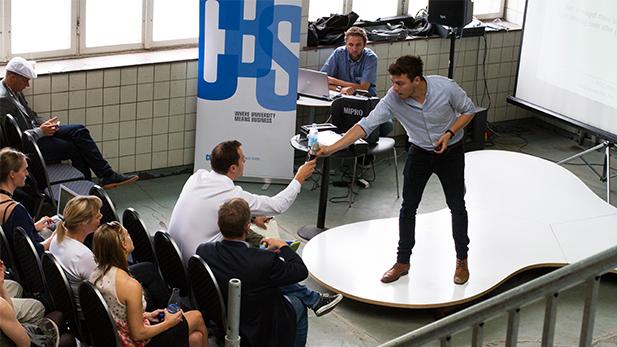
Jonathan Kamstrup (photo) presents his business idea to the audience. Jonathan Kamstrup and Christian Felix Mygh are the founders of the company REC Watches, which has been affiliated with the Copenhagen School of Entrepreneurship (CSE). Three months ago, the young entrepreneurs presented their watches which are made from old cars. At the end of 2013, more than 100 entrepreneurs were affiliated with CSE.
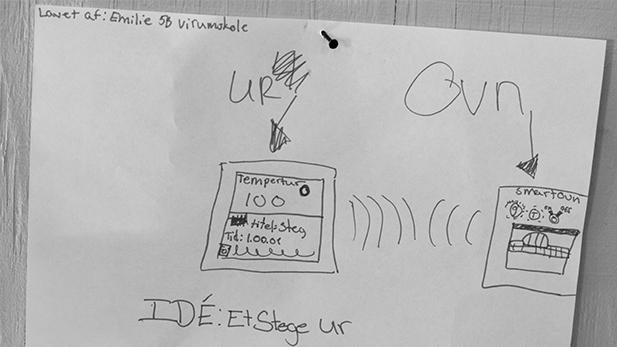
At the Copenhagen School of Entrepreneurship, ingenious and imaginative visitors have drawn their idea. Emilie from primary school, for instance, has invented a digital roasting thermometer/timer.
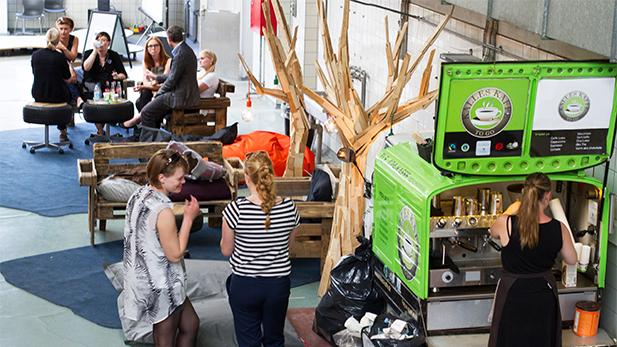
The visitors are served free organic coffee from Kalles Kaffe, who is grinding beans throughout the day. During the festival, Halmlageret, a room with tile walls and flaking wallpaper, is decorated with chairs from recycled wood and soft pillows made from second-hand clothes.
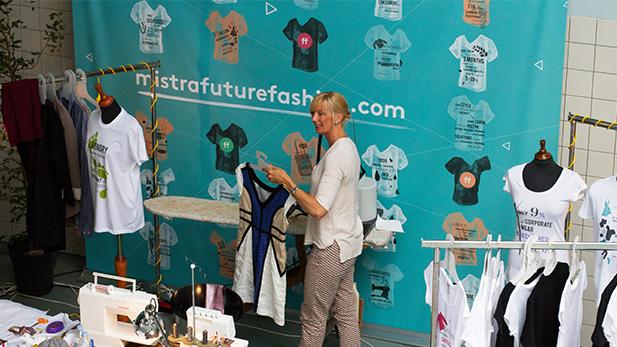
Together with her sewing machine and creative mind, the designer takes hand-me-down clothes and breathes new life into it. One of the visitors had her shirt made into a new dress for her daughter. Sustainable design is the theme of the research collaboration MISTRA. Behind MISTRA are researchers from CBS, the University of Arts London Shanghai and Hong Kong.
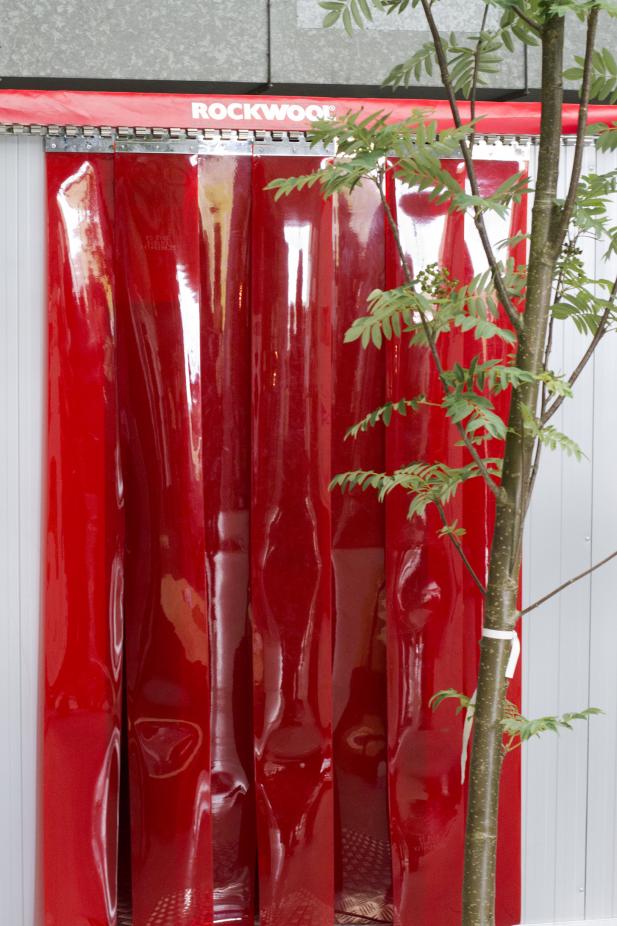
What does Roskilde Festival and a refugee camp have in common? Both camps need sound, temperature and fireproof tents. The house on the photo, which is made in partnership with Rockwool, holds all of these properties. Festival goers were able to rent this model at Roskilde Festival 2013. The research project 'From Rio to Roskilde' tests sustainable solutions at Roskilde Festival to test whether the solutions can be used in a wider context - for instance in a refugee camp.
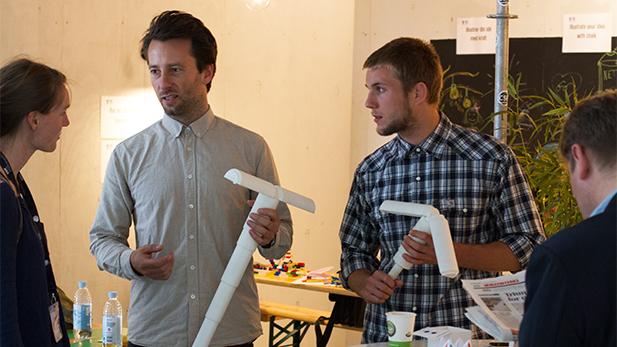
Another entrepreneurship project from CSE. The so-called MonoChair is just as festival friendly as the sustainable houses. A mobile chair to fold and put in the pocket. The three inventors behind the company Mono+Mono Design Jonathan Lind-Bendixen, Nikolaj Bak (left) and Theo Fischer Ginman (right) introduced the visitors to how their idea was realised.
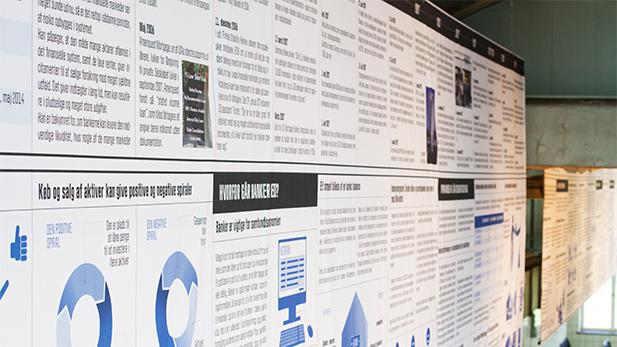
What went wrong during the financial crisis? A 20 metre long 'wallpaper' at Halmlageret answers that question. The wallpaper has been prepared by David Lando, Professor of Finance at CBS.
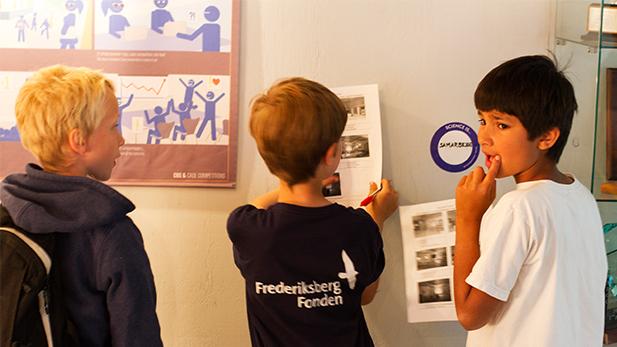
Young festival goers are on a treasure hunt at the Case Competition stand. What does it take to solve a business case? Cooperation! The annual business case of the Case Competition at CBS for students was Copenhagen Zoo.
For yderlig information kontakt projektleder på Science in the City Charlotte Lehman cle.research@cbs.dk.